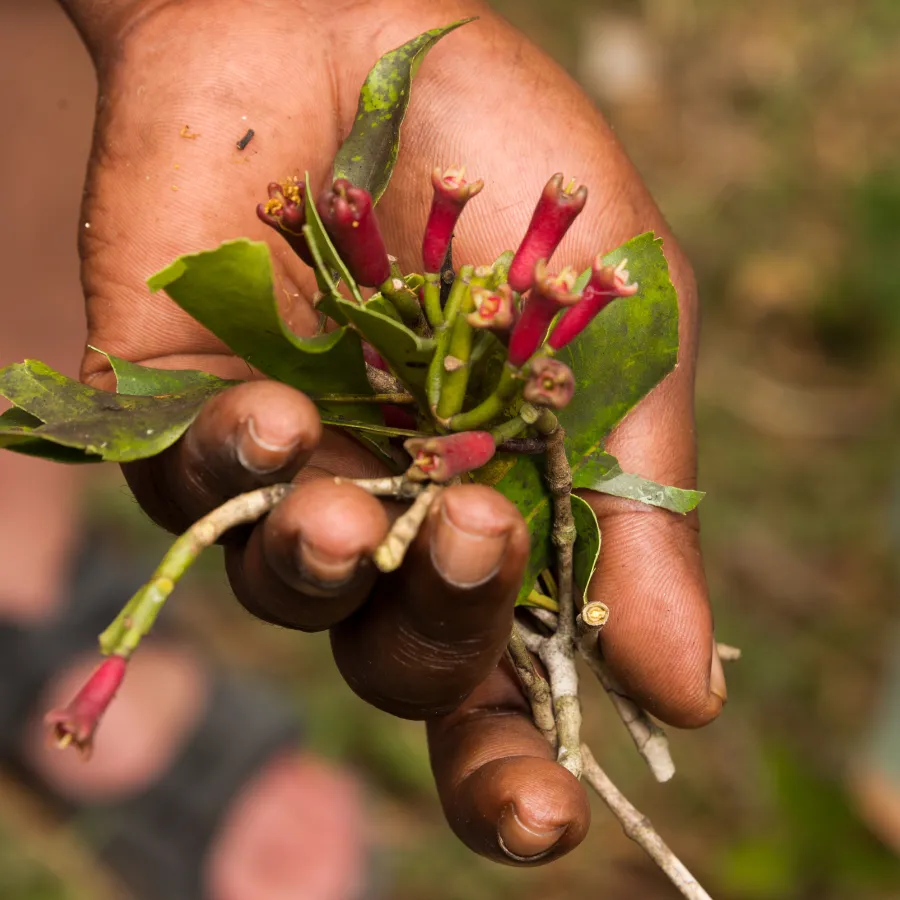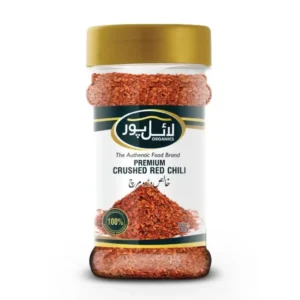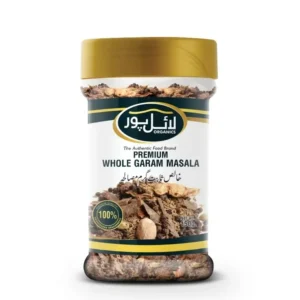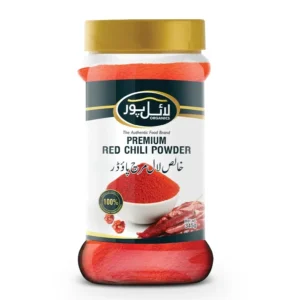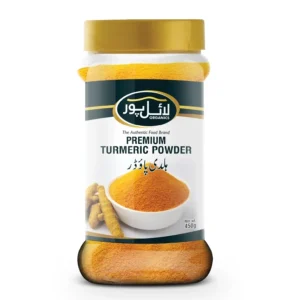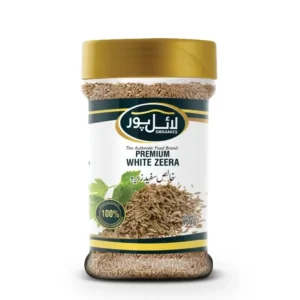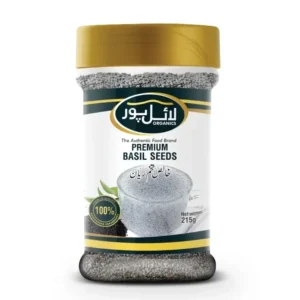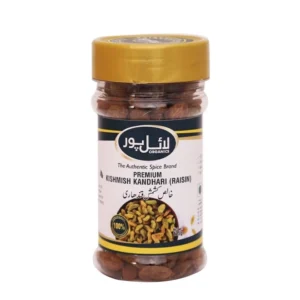Lyallpur Organics Premium Clove (Khalis Laung) – 100% Natural Organic & Pure | Intense Aroma & Warm Flavor | Perfect for Cooking & Health Benefits
History of Cloves
Archaeological evidence suggests that cloves were used in ancient Mesopotamia and China and was even used as a form of currency in some places. Arab traders brought It to Europe in the Middle Ages, sparking a race among European countries to control the lucrative spice trade.
The Dutch eventually took control in the 17th century, and clove cultivation spread to other parts of the world. Today, Indonesia remains the world’s largest producer of cloves (laung).
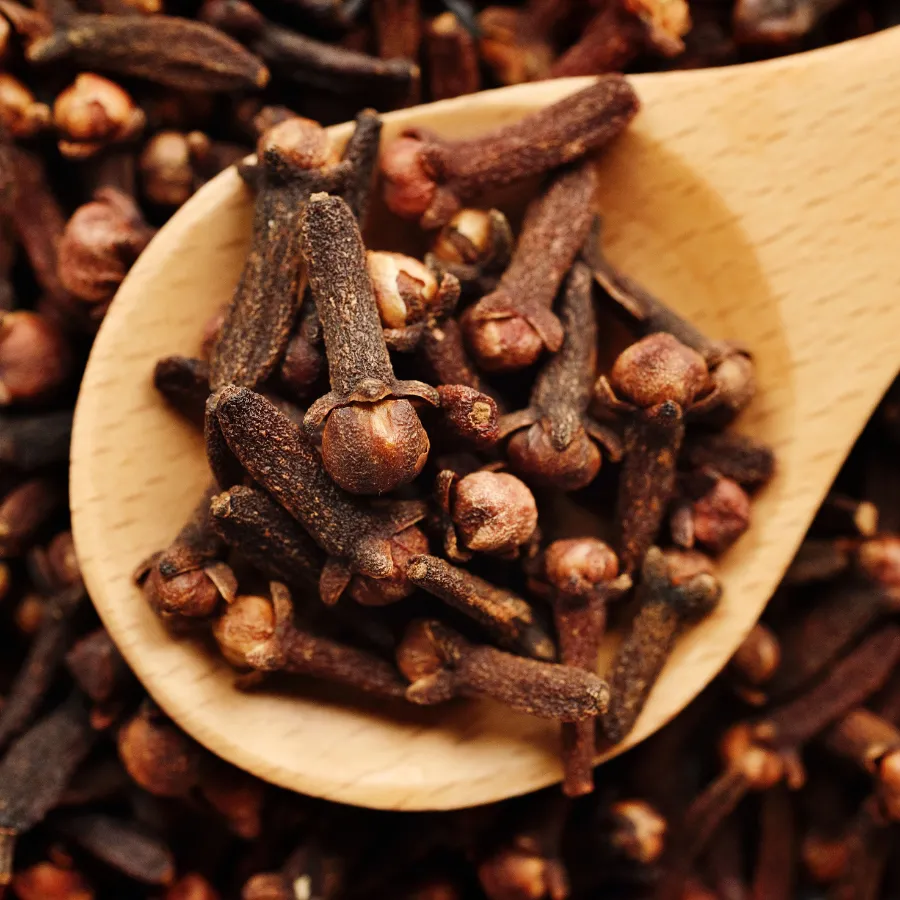
Our Top Selling Product
Nutritional and Health Benefits of Laugn (Cloves)
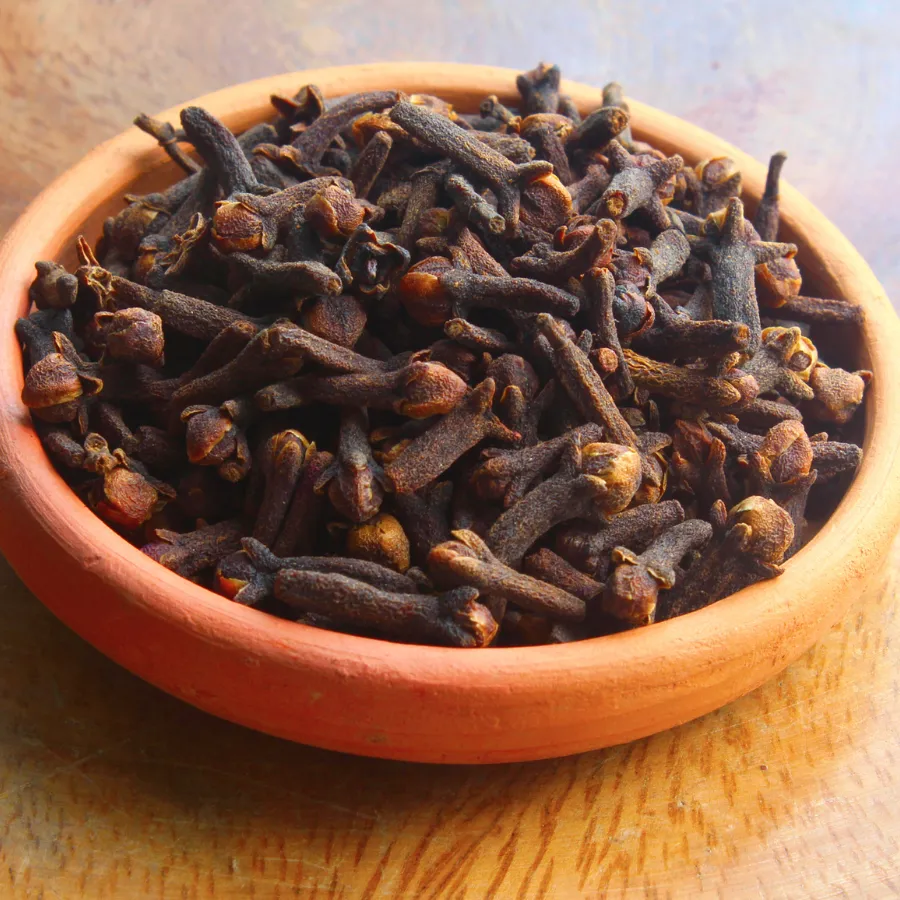
- Vitamins and Minerals: It contains essential nutrients for your body, like vitamins and minerals.
- Fiber: It has fiber, which helps your digestion run smoothly, keeps your gut healthy, and even helps regulate blood sugar levels.
- Antioxidants: It is high in antioxidants, which fight damage in your body and help to prevent chronic diseases.
- Antibacterial and Antifungal: It possesses natural antibacterial and antifungal properties, effectively fighting infections and promoting oral health.
- Digestive Aid: It helps to stimulate the production of digestive enzymes, improve digestion, and relieve symptoms like bloating and gas.
- Blood Sugar Control: Regulates blood sugar levels and improves insulin sensitivity, making them potentially beneficial for people with diabetes.
- Pain Relief: Due to its analgesic properties, it has traditionally been used for pain relief, particularly in dental procedures and headaches.
- Potential Anticancer Effects: It has anticancer properties and helps stop the growth of specific cancer cells.
Nutritional Composition of Laung per 100g
Macronutrients
- Calories: 274 kcal
- Carbohydrates: 61.21 g. (Dietary Fiber: 33.9 g, Sugars: 2.3 g)
- Fat: 20.07 g
- Protein: 5.98 g
Vitamins
- Vitamin K: 272 mcg, Vitamin C: 0.2 mg,
- Vitamin E: 8.8 mg, Vitamin B6: 1.1 mg
Minerals
- Manganese: 325 mg
- Calcium: 646 mg
- Magnesium: 264 mg
- Iron: 8.68 mg
- Phosphorus: 105 mg
- Potassium: 1102 mg
- Sodium: 243 mg
- Zinc: 1.2 mg
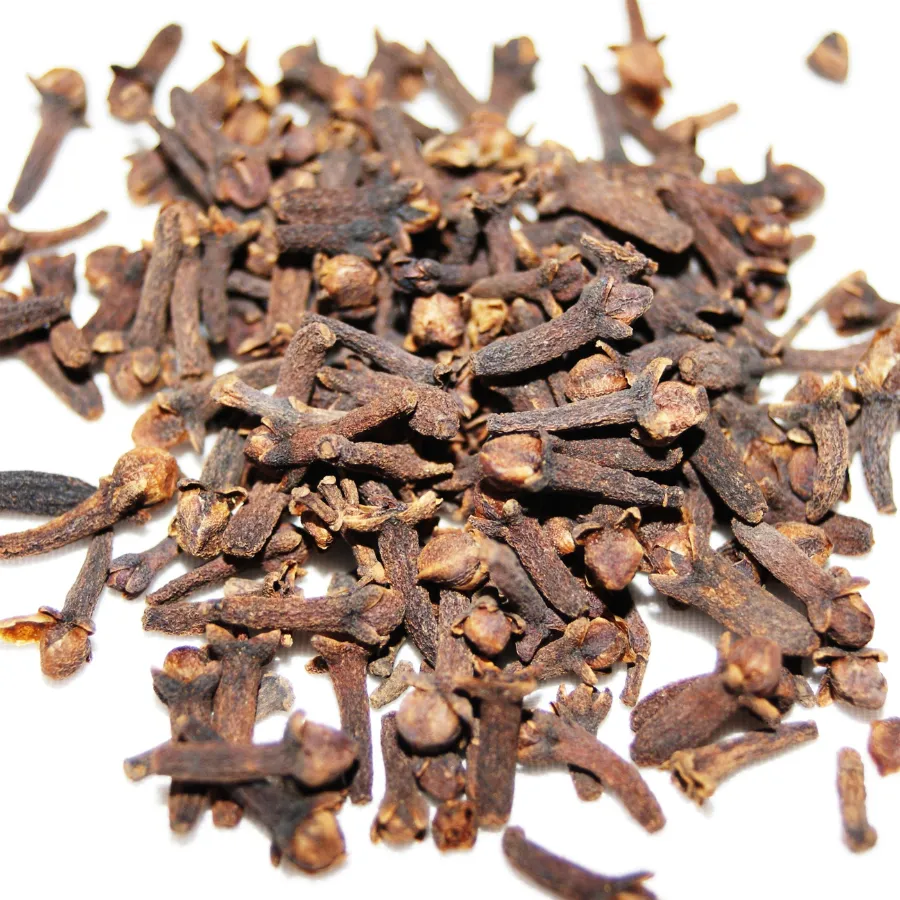
Different Types of Laung (Cloves)

Penang

Zanzibar
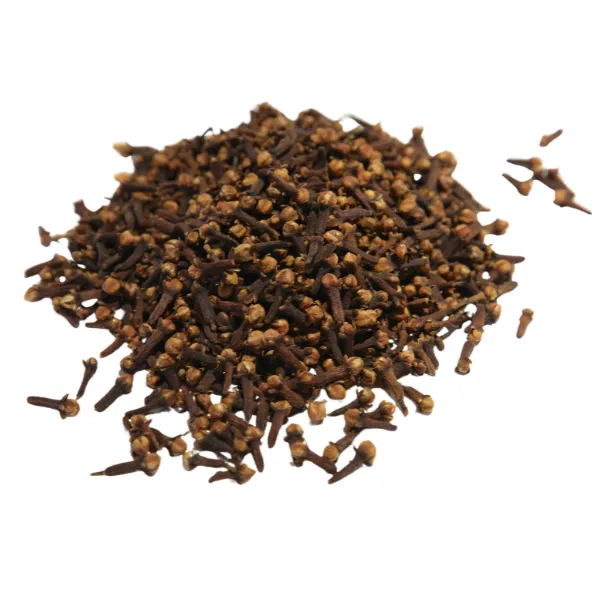
Madagascar
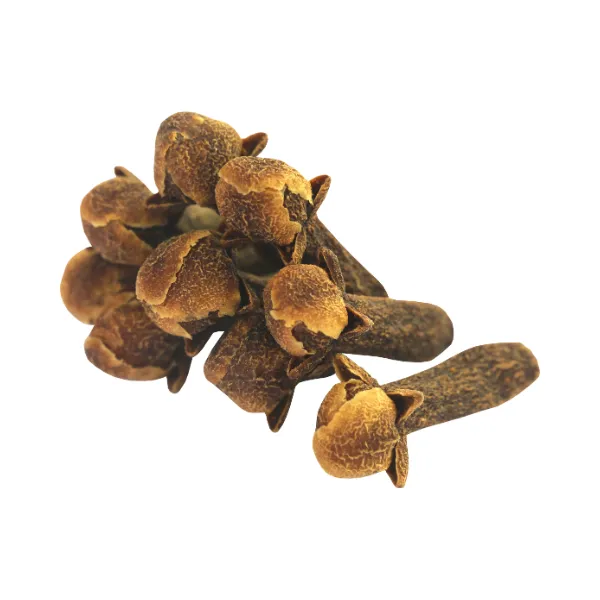
Indian

Ceylon
Different Forms and Uses of Laung (Cloves)
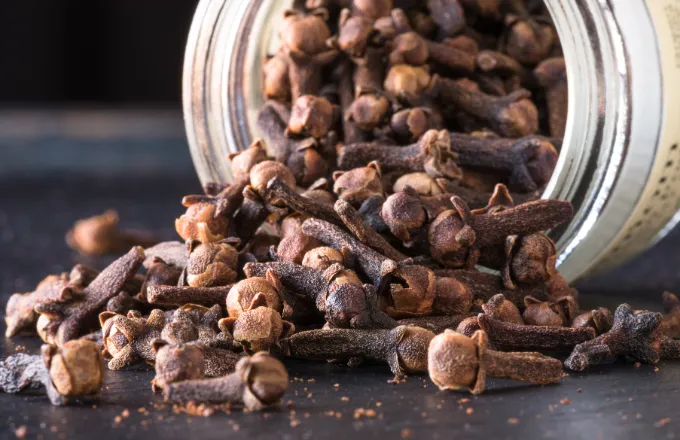
Whole

Powder
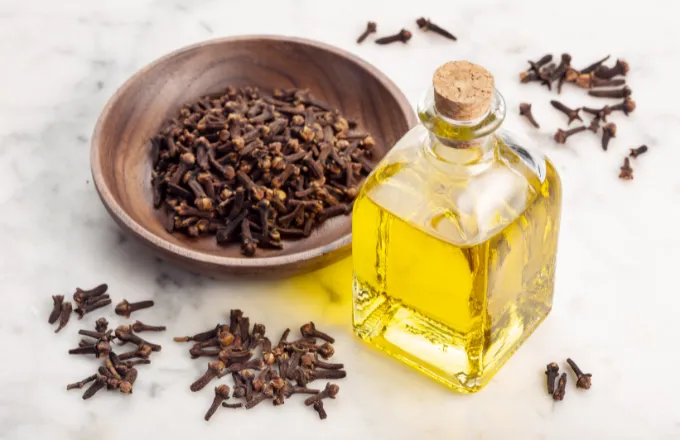
Oil
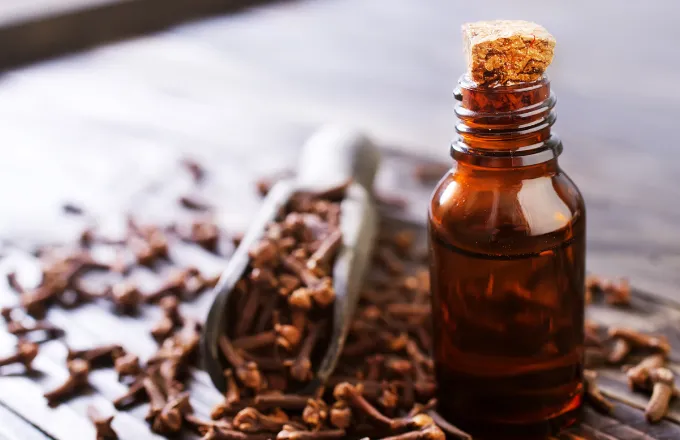
Extract
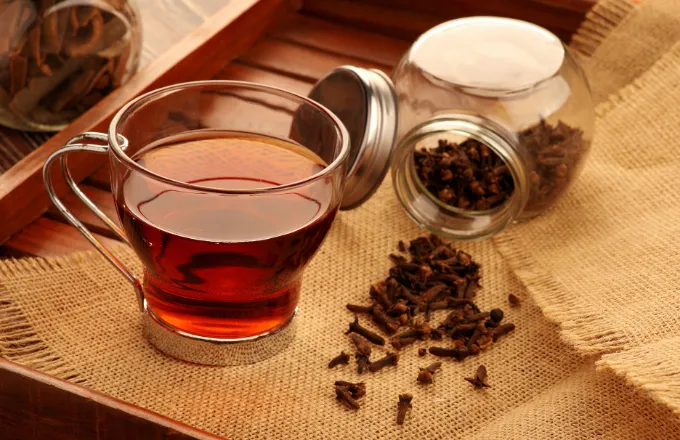
Tea

Toothpaste
Laung (Cloves) in Cooking
Cloves are essential in Pakistani and Subcontinental cuisine as well as Indian, Middle Eastern, and Western cuisine. They add a warm, sweet, and slightly spicy flavor to various dishes.
Subcontinental and Pakistan Clove Recipes
- Biryani: This fragrant rice dish is made with meat (chicken, mutton, or beef), vegetables, and a blend of spices, including cloves.
- Korma: A rich and creamy curry, korma is often flavored with cloves and other spices like cardamom, cinnamon, and cumin.
- Nihari: A slow-cooked stew made with meat (usually beef or mutton), bone marrow, and a blend of spices, nihari is known for its deep, savory flavor.
- Qorma: Like korma, qorma is a flavorful curry made with various meats or vegetables.
- Haleem: It is a popular Ramadan food, a hearty porridge-like dish made with meat (usually beef or mutton), lentils, and wheat.
- Kebabs: Cloves can be added to kebab marinades to enhance their flavor. They add sweetness and warmth to kebabs.
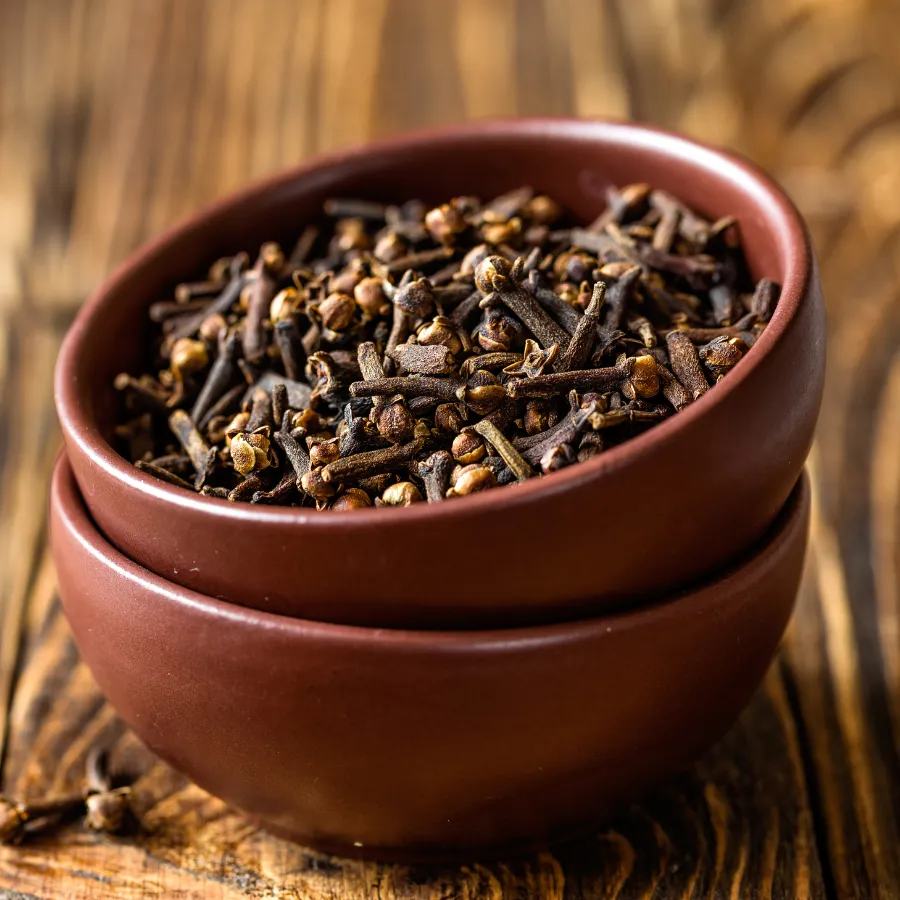
Other Top Products By Lyallpur Organics
Buying and Storing Laung (Cloves)
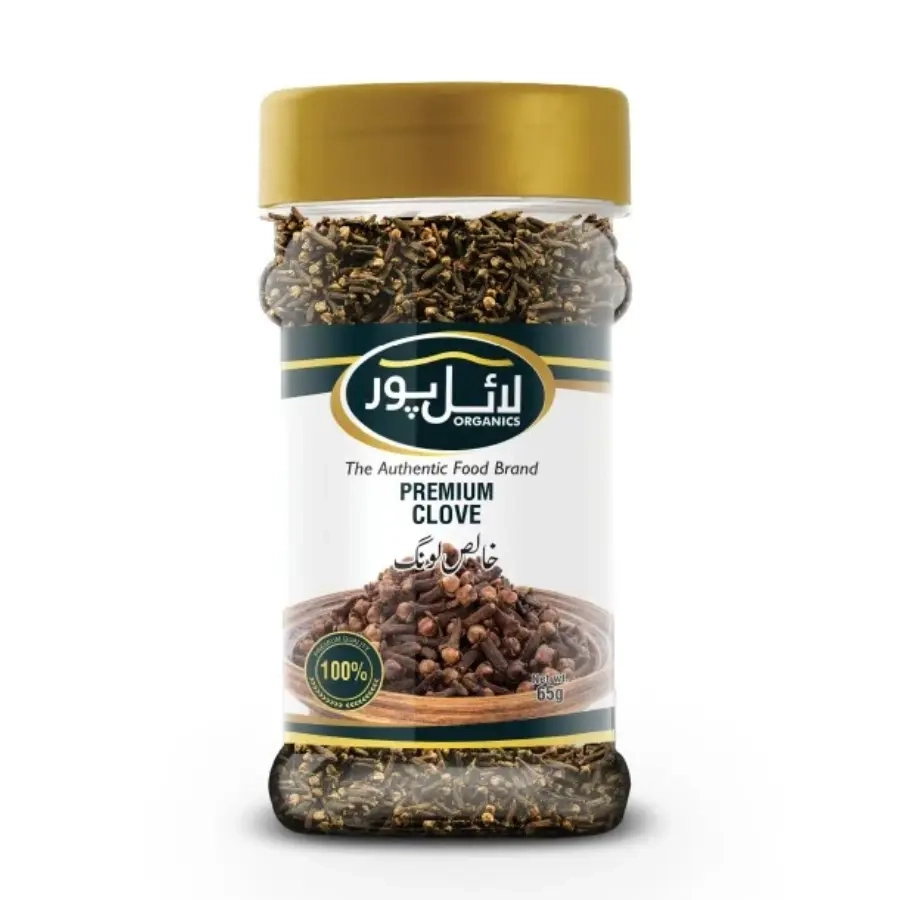
Proper storage is essential. To keep them fresh for as long as possible, keep whole and ground cloves in containers that seal tightly in a cool, dark place like a pantry or spice cabinet, away from direct sunlight and heat. Whole cloves can stay fresh for up to a year when stored correctly, while ground cloves don’t last as long and are best used within six months. To make them last even longer, only buy what you can use before they go bad and keep them away from moisture, as it can make them moldy or lose their flavor. Check your cloves regularly for any signs of spoilage, like a weak smell or changes in color and texture.
Cultivation of Laung (Cloves)
Main points about clove cultivation:
- Climate: Warm tropical temperatures (20°C-30°C), high humidity, well-drained loamy soil (pH 5.5-6.5).
- Planting: Propagated from seeds, transplanted at 6-8 meters spacing after 6 months.
- Care: Regular watering, mulching, fertilization, and weed control.
- Harvest: Begins 4-7 years after planting; unopened pink flower buds are hand-picked and sun-dried until dark brown and fragrant.
- Post-harvest: Cleaning, sorting, and storage in a cool, dry place.
Clove trees require careful management throughout their growth cycle, including watering, mulching, fertilization, and weed control. Harvesting occurs 4-7 years after planting, with unopened flower buds hand-picked and sun-dried. After drying, cloves are cleaned, sorted, and stored for optimal quality. Their cultivation faces diseases, pests, and climate change, requiring integrated pest management and sustainable practices. They are a valuable cash crop used in cooking, medicine, and clove oil production.
